Washington, DC -The Arc has elected a slate of new and returning members of the Board of Directors to lead its work for the next two years. This distinguished group includes professionals in the intellectual and developmental disability (IDD) field and affiliated services, people with IDD, family members, and leaders in the corporate and legal sectors, all of whom are dedicated to promoting and protecting the human rights of people with IDD and supporting their full inclusion and participation in the community throughout their lifetimes.
This Board of Directors takes the helm as we continue to chart a course for our future with the Strategic Framework for the Future of The Arc that focuses on growing our power and diversifying our movement. We are committed to supporting our chapter network as it continues the work on the ground supporting people with IDD and their families, while facing a massive workforce crisis that threatens all of the progress we have made to realize the rights of people with IDD and their families and support them in the community.
“The Arc has been right alongside families and people with disabilities for more than seven decades – and we have a lot of work to do to continue to be the leading grassroots organization for people with IDD. This board of directors has all the skills necessary to seize on the opportunities, and meet the challenges, ahead. I look forward to leading this incredible group as we support the future of The Arc,” said Laura J. Kennedy, President, The Arc’s National Board of Directors.
The Arc’s Board Development Committee completed a rigorous process of preparing the slate of officers and directors for election. The Committee identified and selected a group of candidates that, collectively, has the knowledge, skills and expertise to meet The Arc’s leadership needs. The slate was then presented at the 2022 annual business meeting.
National Board Members of The Arc
Officers
President: Laura J. Kennedy, Staten Island, NY. Since 2018, Kennedy has been a member of The Arc’s Board of Directors where she has served as Treasurer and chair of the Policy and Positions Committee. Laura is a parent of woman with a developmental disability and has been a strong advocate on the local, state, and national level. After 28 years, she retired as Director of the Staten Island Early Childhood Direction Center, a NYS Education Department technical assistance center for families and professionals. Kennedy has been an active board member of both the local New York City chapter of The Arc, and The Arc New York, having served as president of both. While President of The Arc New York, Kennedy formed a workgroup that is currently preserving the organization’s significant collection of disability history. She has been an active member of the Willowbrook Legacy Committee, a collaborative between the College of Staten Island, its Archivist, and the disability community in preserving and recognizing the Willowbrook Consent Judgement and the social justice struggle connected to it. She has also served for over 35 years on the board of the Staten Island Developmental Disabilities Council.
Vice President: Debbi Harris, Eagan, MN. Harris is a Systems Specialist with Family Voices of Minnesota, and is committed to helping shape all civic, community, and health systems to seamlessly include people with disabilities and chronic medical conditions and their families. Harris has personal experience navigating those systems for over 25 years on behalf of her son Josh, who has intellectual and developmental disabilities and complex medical needs. Harris has served on The Arc’s Committee on Diversity and is currently a member of the national Work Advisory Group for Paid Leave for All.
Secretary: Mitch Routon, Colorado Springs, CO. Routon works as an employee of The Arc Thrift store in Colorado Springs, CO. Routon is a member of The Arc Pikes Peak Region where he served as Treasurer and Vice President. Routon is currently serving as President of The Arc of Colorado’s Board of Directors. He has served on The Arc’s national Board of Directors since 2018. He is a strong self-advocate in the Colorado Springs area and larger Colorado community.
Treasurer: Burt Hudson, Arlington, VA. Hudson is the Chief Operating Officer of LeadingAge, an association of non-profit aging service and long-term care providers. He is responsible for the association’s human resources, business development, finance, and information technology departments. Hudson is both a father and brother of individuals with disabilities. He currently serves as Treasurer of the board of directors of The Arc of Virginia, an organization he has served since May of 2011.
Immediate Past President: Kenneth Oakes, Philadelphia, PA. Oakes has been involved with The Arc since 1976. While in college he worked at a summer school program for students with intellectual and developmental disabilities (IDD). The school was founded by the Erie County, PA chapter of The Arc. This experience set him on a 47-year career in special education and working with and for children and adults with IDD, and a lifetime of volunteer service with The Arc. He has served as President of The Arc of Philadelphia and The Arc of Pennsylvania and continues as an active member of both boards. Elected to The Arc US Board of Directors in 2016, he has served as Board President, chair of the Policy & Positions Committee, and member of the Executive, Strategic Planning and Diversity Committees. Currently, he serves as Chair of the Board Development Committee and Co-Chair of the Policy & Positions Committee. Oakes lives in Philadelphia with his husband Ed.
President, The Arc of the United States Foundation Board: Carol Wheeler, Washington, DC. Wheeler serves as the President of the Board of Directors for The Arc of the United States Foundation. Prior to this role, Wheeler was on The Arc’s national Board and Executive Committee and during the Obama Administration, was appointed to the President’s Committee for People with Intellectual Disabilities. Wheeler’s other volunteer work has included founding and chairing the board of the Washington Ireland Program for Service and Leadership, co-chairing the Advisory Board for N Street Village, founding and chairing the Friends of J.O. Wilson Elementary School, coordinating the DC program for Project Children, chairing the board of the South Africa-Washington Program, and co-chairing the Washington Interfaith Network.
In addition to working on Capitol Hill and in a Cabinet agency, she has served as White House Liaison for Women’s Organizations, Executive Director of the Women’s Campaign Fund, Vice President of Government Affairs at the National Association of Broadcasters, and as a consultant/lobbyist for America’s Public Television Stations.
New Board Members
Frank Adu, North Brunswick, NJ. Adu is the Chief Executive Officer of The Arc Middlesex County. He started with the company over 27 years ago as a direct support professional and advanced into different leadership roles within the organization. Adu is a Certified Nonprofit Accounting Professional and a leadership coach under John Maxwell. He enthusiastically embraces learning and training and strives to grow leaders.
Frank possesses an MBA and is a member of the Steering Committee of the National Conference of Executives of The Arc. He is also a member of the New Jersey Conference of The Arc Executives and former board treasurer of the New Jersey Association of People Supporting EmploymentFirst.
Kim Dodson, Indianapolis, IN. Dodson has over 30 years of experience in the field of public policy and government affairs. In 2015, she was appointed to serve as Chief Executive Officer of The Arc of Indiana. She first joined The Arc of Indiana in 1998 as Director of Government Relations and was moved into the role of Associate Executive Director in 2006. In 2013, Dodson was named CEO of Arc Innovations, Inc. and The Arc Building Corporation. These related entities work with The Arc, focusing on employment opportunities for people with disabilities. Together they have established the Erskine Green Training Institute and Courtyard Muncie at Horizon Convention Center – a landmark project that provides training to people with disabilities to work in the hospitality, food service, and health care fields.
Pablo Juárez, Nashville, TN. Juárez was born and raised in Austin, Texas where some of his earliest jobs were serving people with disabilities. After graduating from the University of North Texas and completing a few summer internships serving in a traumatic brain injury rehabilitation program, Juárez moved to Nashville to join a multidisciplinary brain injury rehabilitation team. He then attended Vanderbilt University for a master’s degree in special education and is currently the Co-director of TRIAD, the autism institute at Vanderbilt Kennedy Center. Juárez has focused on expanding services for children with autism significantly throughout Tennessee. Juárez has previously served as a board member for Tennessee Disability Rights, Tennessee Equality Project, and Tennessee Association for Behavior Analysis and served on multiple workgroups through local, state, and national disability-focused organizations. He also currently serves as one of the board of directors for the Association for University Centers on Disabilities.
Jamelia Morgan, Chicago, IL. Professor Morgan is an award-winning and acclaimed scholar and teacher focusing on issues at the intersections of race, gender, disability, and criminal law and punishment. Her work examines the development of disability as a legal category in American law, disability, and policing, overcriminalization, the regulation of physical and social disorder, and the constitutional dimensions of the criminalization of status.
Professor Morgan received a BA in Political Science and a MA in Sociology from Stanford University, and her JD from Yale Law School. She served as Associate Director of the African American Policy Forum, a social justice think tank that works to bridge the gap between scholarly research and public discourse related to affirmative action, structural racism, and gender inequality.
Yvette Pegues, Canton, GA. Pegues is academically trained as a Doctor of Education Leadership & Early Childhood Specialists, Doctor of Business Philosophy, and Microsoft Certified System Engineer. She authored several IBM patents, white papers, and Redbooks in her Engineering and World Wide Program Delivery Manager roles as well as non-fiction books as educator and Diversity Practitioner. She is also a globally recognized and acclaimed DEIB (diversity, equity, inclusion, and belonging) authority. As a disabled executive, she is uniquely qualified and trained to uncover equity gaps and disability barriers that organizations and people leaders cannot see.
Dick Rhoad, Carmel, IN. Rhoad is an accomplished executive with proven success in diverse industries. His leadership experience includes staff development, finance, and operations, with an exceptional record in strategic direction and business development. Rhoad has led large organizations, as well as small businesses. He has qualified credentials in commercial business, the public sector, and nonprofit organizations. For over 25 years, Rhoad has supported organizations serving individuals with intellectual and developmental disabilities. He has been both a continual volunteer and a leader in assisting these organizations to grow and expand their services. Rhoad is currently a member of The Arc of Indiana Board of Directors and serves on multiple committees.
Christopher J. Rodriguez, Phoenix, AZ. Rodriguez has an extensive history advocating alongside and on behalf of individuals with disabilities at the local, state, and national levels. Before becoming the President and CEO of Ability360, Rodriguez served as the Executive Director of Disability Rights Louisiana, Director of Public Policy for National Disability Institute, Director of Governmental Affairs and Media Relations for the Michigan Protection and Advocacy, and Director of Chapter Services at The Arc of Texas.
Rodriguez received his undergraduate degree at the University of California, Berkeley. He earned his graduate degree in Public Affairs at the Lyndon Baines Johnson School of Public Affairs at the University of Texas, Austin. Rodriguez’s passion for advocating comes from his experiences as the younger sibling to a person with significant intellectual and developmental disabilities.
Sumeet Seam, Cabin John, MD. As the chief legal officer at the National Geographic Society, Sumeet Seam leads the organization’s legal and business affairs function and is involved in shaping the Society’s business model and growth strategy. Mr. Seam joined the Society with 20 years of experience successfully developing high-performing legal and risk departments. He served as general counsel for Save the Children, overseeing all legal affairs and key operations functions. He also spent 12 years at Discovery Communications, where he managed the U.S. corporate legal department. As a public speaker, Mr. Seam has addressed board governance; crisis management; enterprise risk management; diversity, equity, and inclusion; and workplace culture.
Kristen Soler, Raleigh, NC. Soler is a successful corporate executive with over 20 years of experience working in consumer products, retail, and auto. Soler started with Advance Auto Parts in 2017 as the Vice President of Human Resources, Supply Chain & Corporate and has since been promoted to the Senior Vice President, Human Resources. As a member of Advance’s transformation team, Soler has focused on recruiting top talent to key leadership positions and frontline retention. She has delivered improved results in inclusion and diversity, the team member experience, and building a stronger employer brand. Soler launched the company’s hiring strategy for people with disabilities across the enterprise, under which they have currently hired 550 team members with disabilities. Soler is active with other nonprofits including the Triangle American Heart Association, the American Heart Association, and the Tim Tebow Foundation.
Returning Board Members
Meghan Burke, Champaign, IL. Burke is a professor in the Department of Special Education and Education Policy, Organization and Leadership at the University of Illinois at Urbana-Champaign. Her research examines parent advocacy, sibling caregiving, and families of individuals with disabilities. Burke has a 29-year-old brother with Down syndrome and has an eight-year-old son with a disability.
Jasmine E. Harris, Washington, DC. Harris is a law and inequality legal scholar with expertise in disability law, antidiscrimination law, and evidence. She is a professor of law at the University of Pennsylvania Carey Law School. Her work seeks to address the relationship between law and equality with a focus on law’s capacity to advance social norms of inclusion in the context of disability. She consults with federal and state lawmakers and legal advocates on issues of legislative and policy reforms related to disability laws.
Stacy Kray, Pal Alto, CA. Kray is an attorney with more than 20 years of transactional and litigation experience at leading global law firms. She has been involved in class action and other legal proceedings to enforce the civil rights of those with disabilities under federal and state law, including the federal Americans with Disabilities Act (ADA) and the Individuals with Disabilities Education Act (IDEA). As a pro bono coordinator, she co-founded a community impact project to educate teens about their legal rights and responsibilities relating to social media use and sexual misconduct that includes modules on hate crimes, legal consent, and bullying (areas of critical importance for the disability community).
Russell Lehmann, Los Angeles, CA. Lehmann is an award-winning and internationally recognized public speaker, thought leader, and poet with a platform on autism and mental health. After Lehmann’s diagnosis at age 12, he became increasingly isolated from the outside world due to the pain and hurt of not being understood. His journey took many twists and turns, and he found solace in writing poetry, participating in athletics, and becoming an advocate. A graduate of MIT’s “Leadership in the Digital Age” course, Lehmann’s name and story are known worldwide, and his workshops, keynote speeches, and performances reach thousands of students, teachers, legislators, policy makers, business leaders, and service providers each year. He was recently recognized by the Autism Society of America as the “2022 Advocate of the Year”.
Meredith Sadoulet, Philadelphia, PA. Meredith Sadoulet is an entrepreneur, former corporate executive, and board director. With an extensive background in human resources, finance, and strategy, she brings diverse leadership across media & technology, financial services, healthcare, energy, and defense industries spanning multiple iconic Fortune 100 companies. Meredith is the Founder and CEO of ProFound, an early stage startup that is building a powerful professional network among leaders with disabilities and accessibility advocates. She has both a personal connection to and professional experience with disability inclusion and advocacy. Meredith is the recipient of a variety of workforce and future of work related awards, including the Society for Human Resource Management (SHRM) & Society for Industrial & Organizational Psychology (SIOP) HR Impact Award and the National Diversity Council Top Talent Officer Award.
Chris Stewart, Birmingham, AL. Stewart became the President/Chief Executive Officer at The Arc of Central Alabama in 2013, after serving as the organization’s Chief Financial Officer since 1999. He is responsible for the oversight of more than 650 employees across 89 locations who manage early intervention, adult day activity, community experience, employment, and residential programs for people with intellectual and developmental disabilities. Stewart has made a tremendous impact on the organization’s fundraising and strategic business operations. Among Stewart’s many accolades, he was named by the Birmingham Business Journal as the 2020 CEO of The Year, and received the 2022 NCE Executive Excellence Award.
Chloe Rothschild, Sylvania, OH. Rothschild is an adult with autism who is on a mission to advocate and teach others about autism from her perspective. Rothschild is one of the co-authors of the My Interoception Workbook for Teens, Adolescents, and Adults. She has served on The Arc’s national Board of Directors since 2018. She also serves on the Ohio Center for Autism and Low Incidence (OCALI) advisory board. Rothschild has been advocating for autism from her perspective for over 10 years. She works as a teacher’s aide at an autism school three days a week.
Faye Tate, Denver, CO. Tate is the Vice President of Diversity & Inclusion at CoBank and the former Director for Global Equality Diversity and Inclusion at CH2M. Tate is well-known in the field of diversity and inclusion, having a proven track record in successfully developing and implementing strategic diversity and inclusion plans for multiple organizations. She is focused on positioning diversity and inclusion as strategic business imperatives. She has a family member with intellectual disability.
Jose Velasco, Austin, TX. Velasco is a Program Director in the Product Engineering Board area at SAP and Autism at Work Ambassador. Velasco’s 30-year information technology career spans the private and public sectors and companies ranging from startups to Fortune 50 enterprises. During his tenure of 24 years at SAP, Velasco has occupied positions in product management, consulting, development, strategy, go-to-market, and diversity functions. In 2016, Velasco launched the Autism at Work Summit, a conference series designed to foster collaboration with the ultimate purpose of improving opportunities for individuals with autism in the labor market. He has two family members with autism.

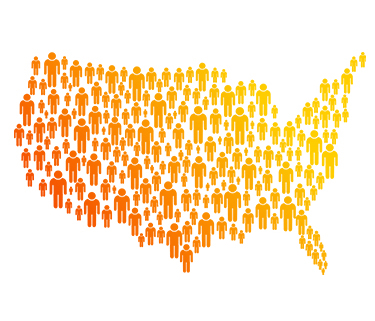
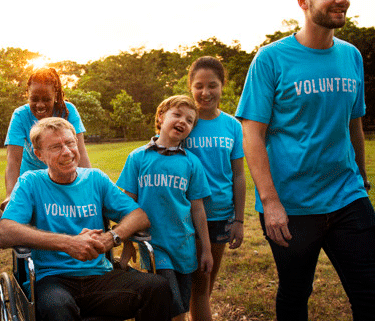



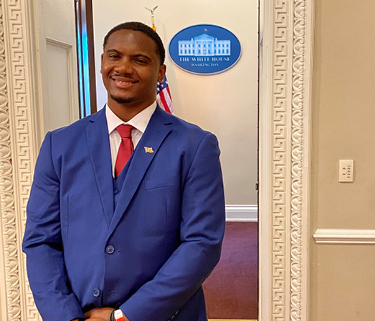
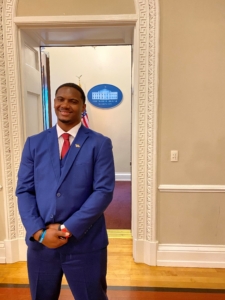
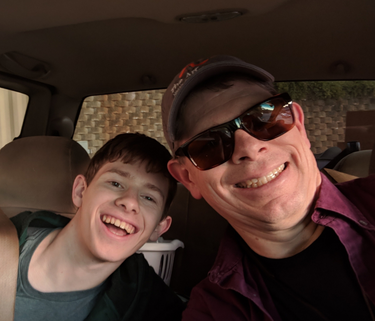
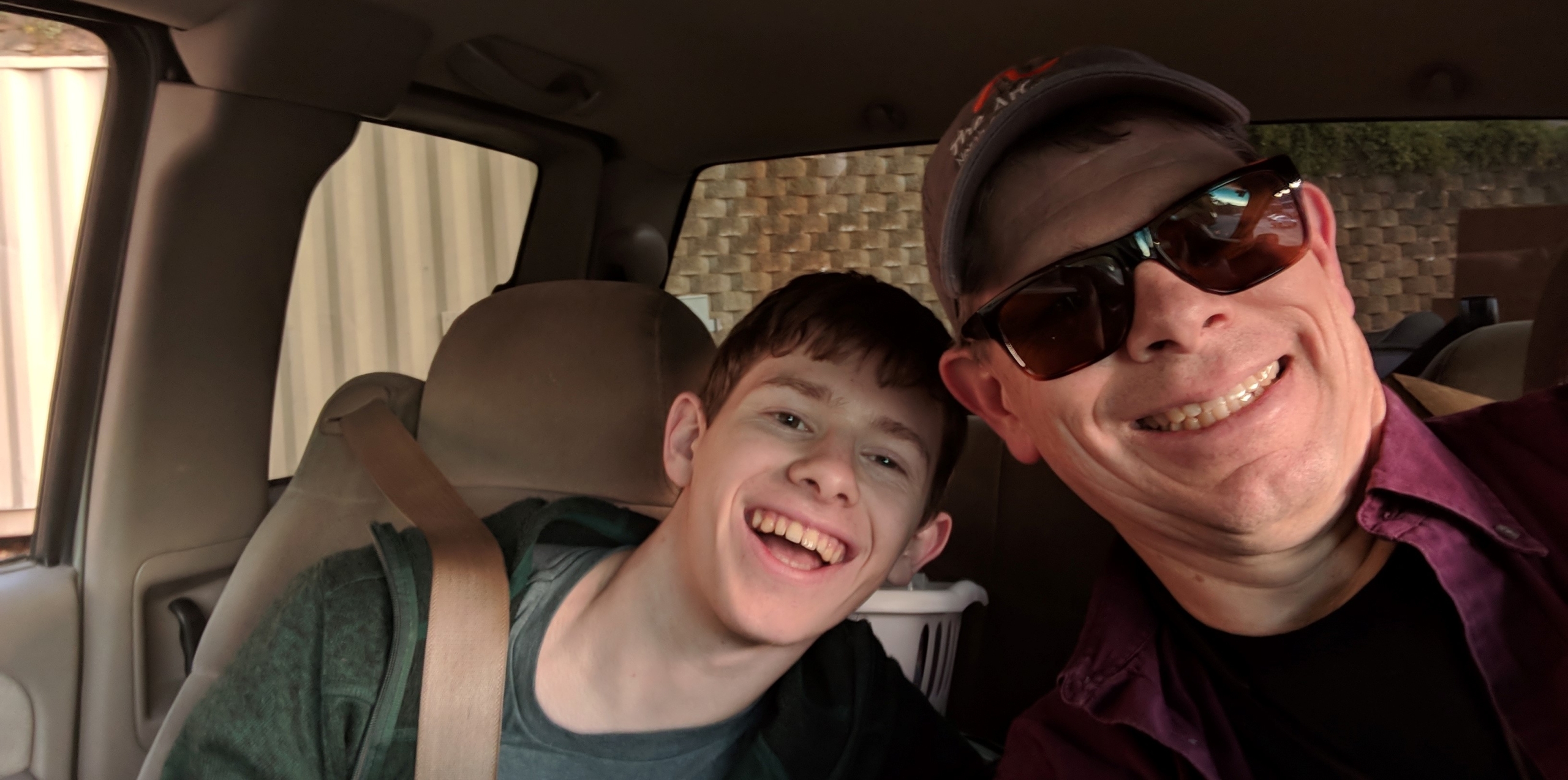 Isaac has autism and mental health disabilities. Isaac sometimes gets very focused on certain things and struggles to adjust or focus on other things. To help him in school, a 504 plan was created so that teachers and other staff at the school would know how to support and redirect him safely.
Isaac has autism and mental health disabilities. Isaac sometimes gets very focused on certain things and struggles to adjust or focus on other things. To help him in school, a 504 plan was created so that teachers and other staff at the school would know how to support and redirect him safely. 





